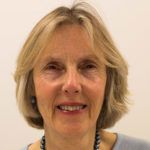 March sees the picturesque town of Basel transformed as it celebrates Fastnacht. Masks are donned, people pour into the streets to the sound of piccolos and drums, and party. Transformation was very much on the minds of the 300 participants from 22 countries who walked over confetti strewn streets to the town’s spanking white congress centre to debate, “How patients are changing the face of healthcare.” Their conclusion? A bit, but not nearly enough.
March sees the picturesque town of Basel transformed as it celebrates Fastnacht. Masks are donned, people pour into the streets to the sound of piccolos and drums, and party. Transformation was very much on the minds of the 300 participants from 22 countries who walked over confetti strewn streets to the town’s spanking white congress centre to debate, “How patients are changing the face of healthcare.” Their conclusion? A bit, but not nearly enough.
The meeting was convened by the Careum Foundation and the European Network of Patient Empowerment and was opened, with studied provocation, by former chief executive of the NHS, Nigel Crisp.
“When, he asked, did we decide to ‘outsource’ power to health professionals? To let them and commercial enterprises medicalise our lives and turn us all into patients and health consumers? Health should be turned upside down and democratised,” he argued. Taken out of its technological silo and turned into a cross sectoral enterprise, as it is in Bangladesh, “where BRAC does health and all the rest in one swoop.”
The message that power must be ceded to “end users” was much repeated and there was a call for self management of health to become a core competence for all citizens. Public and patient networks should mobilise and hold their health systems fully to account, the meeting agreed.
The power and influence of linked networks of civil society and patient groups is increasing, as is their passion for change. Representatives from the European Patients Forum, the International Alliance of Patient Organisations, The European Patients Academy on Therapeutic Innovation, The Planetree Network, and many others made this abundantly clear.
Support for change is also coming from national governments, the EU, and WHO. Speakers pointed to the growing number of policies and initiatives aimed at empowering patients and the public, and furthering their participation in healthcare decision making, and in defining “value” in healthcare.
But it takes more than fine words to make health systems change, the meeting agreed. Take Austria, said Sigrid Pilz, a lawyer and patient advocate from Vienna. “Patients have scant opportunity to be involved in the design of services.” And a recent decision to give them full access to their medical records has been “fought” by doctors “reluctant to share power and information.”
This contrasts, speakers suggested, with the situation in Denmark and the Netherlands where “the playing field in heath is flatter.” People have better access to information, not least personal health information and the performance of providers, and this is leading to the development of more collaborative, better integrated models of care. One example cited was ParkinsonsNet.
Efforts to step up citizen involvement in healthcare are, however, bedevilled by low literacy rates. Co-production of health won’t be achieved unless people are empowered to act as partners, it was agreed, and simply lobbing information at people is not enough. They are deluged in it. They need help to find reliable information and to understand it.
But health literacy is not just for patients. Healthcare organisations and health professionals need to become “health literate” too. When people become ill the stress of navigating labyrinthine care pathways negatively effects their experience of care and its outcome. In an attempt to raise organisations’ health literacy the Institute of Medicine has produced a check list of 10 core attributes they need to develop.
Doctors also need to be taught how to partner with patients. Medical schools and continued medical education programmes don’t appear to “get” the importance of this. Participants underlined that deploying patients as teachers is important. And might the games industry help?
A lively session run by the Dutch Institute for Healthcare Improvement showed that teaching doctors core skills and helping patients cope with illness—including depression, post traumatic stress syndrome, and the burden of living with cancer—can be made fun. That worthy learning and treatment modules “can be developed into games which are played as compulsively as World of War Craft.”
No debate on patient power and the future of healthcare is complete without a discussion on personalised medicine, the power of big data, and the use of personal health apps—and all were mentioned. A show of hands suggested plenty of people have embraced “doctor in your pocket” technology. Others sent out warning notes.
Technological wizardry does little to help patients with long term illness improve their quality of life. Around a third of people with long term conditions are depressed, said Kate Lorig from the Stanford Patient Education Research Center. Validated self management programmes, which are now available online, increase self confidence, and improve social functioning and health outcomes. In the US, health insurers pay for them, but that is not the case in other countries, including the UK, where commissioning groups see them as “non traditional” interventions and are reluctant to pay for them.
Yet another example of why healthcare needs to be turned upside down.
Presentations from the meeting are available online.
Tessa Richards is senior editor/patient partnership, BMJ.
